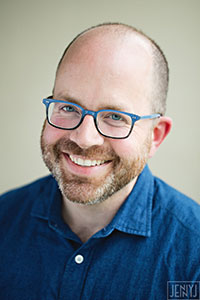
I’m back in seminary, this time at Virginia Theological Seminary in Alexandria, and I like to ask people I meet here one basic question: As Episcopalians, what is our gift to the world? What is the one thing we contribute that is unique, and truly helps the world become a better place?
I get different answers, or sometimes no answer at all. It’s an important question for me though, because I’m preparing to go deeper into our culture, transitioning from the part-time role of deacon to an identity as an Episcopal priest. I’m taking classes out here and earning grades, but I’ve been told I’m here primarily for “Episcopal formation,” and that has me reflecting on “Episcopal” — what is it? Who are we? What am I getting myself into??
“The Episcopal church stands at the intersection of justice, intellect, and beauty,” one of my professors said, in response to my question. I like that. I might add something about “community,” but she has a pretty solid answer. Some people have ducked my question, saying the Episcopal Church needs to focus first on its flaws and blind spots, and only then can we think about identity. But I think this stance has it backwards.
Here’s my answer: for the Episcopal Church, it’s unity first, agreement second. We are one body, one community, no matter how divergent we are in our voting preferences, social privileges, points of view, and competencies; and no matter how diverse we are in our race, sex, gender, sexual orientation, socioeconomic class, or national origin. We are Republicans, Democrats, conservatives, socialists, independents, progressives. We don’t agree on important theological or ecclesial matters. We say creeds together, but not with certitude—we say them with a questioning, discerning heart.
In the CCD, identity is a huge piece of our learning. We learn about individual identity (for example, in our work on the Myers-Briggs Typology Indicator), and we also get in touch with who we are as Episcopalians, as global Anglicans, and as individual congregations of all sizes, locations, and conditions. We get curious about who we are so that we can more confidently share that identity with those around us who hunger for the joyful ministry we offer.
I am an Episcopalian living in community with other Episcopalians, so it’s no surprise that I disagree with my classmates about many things. But that is a feature, not a bug. In a world so torn by violence, misunderstanding, prejudice, hatred, and fear, it is a great comfort to know that I am a part of a group that values unity above all. It may be what the world needs most.